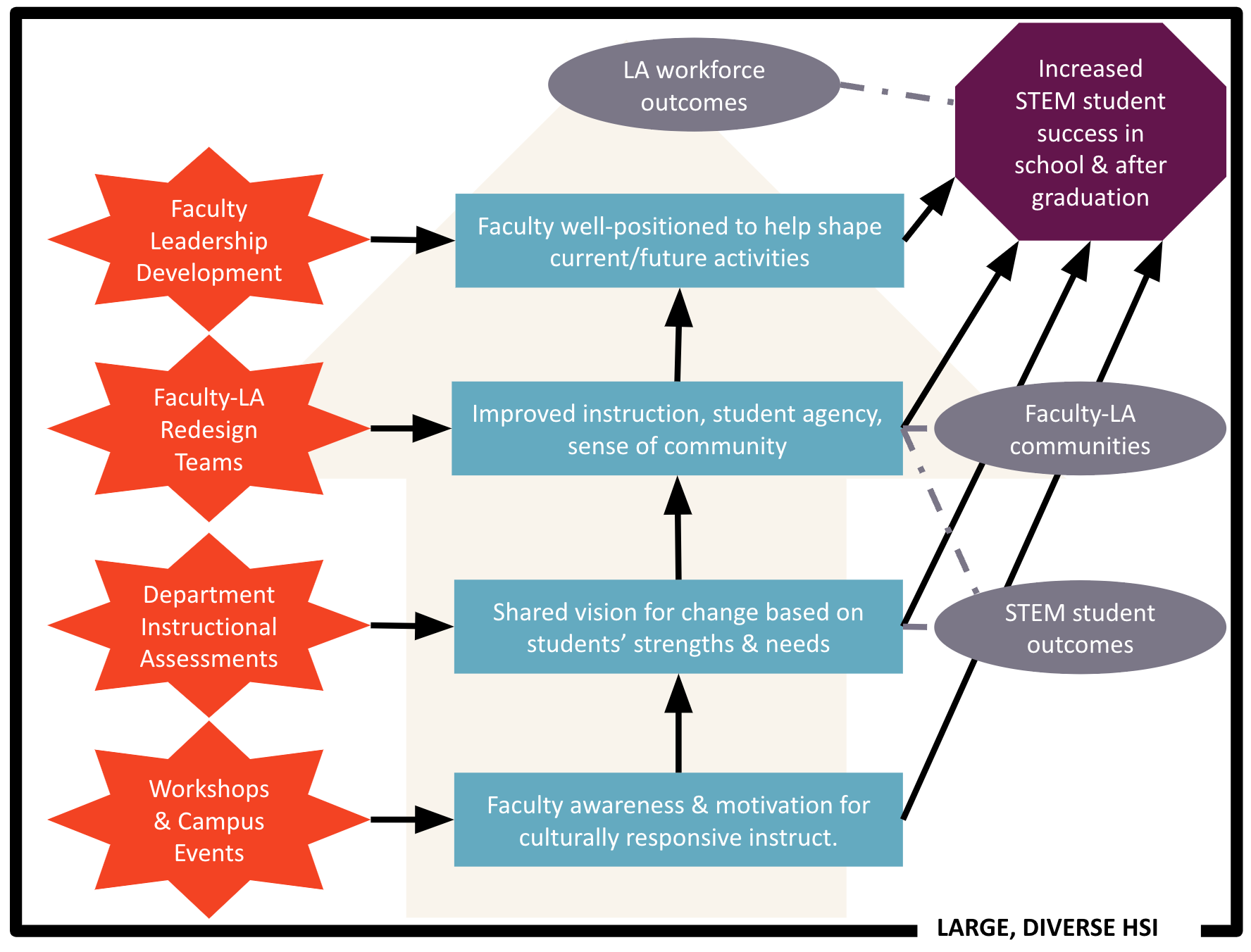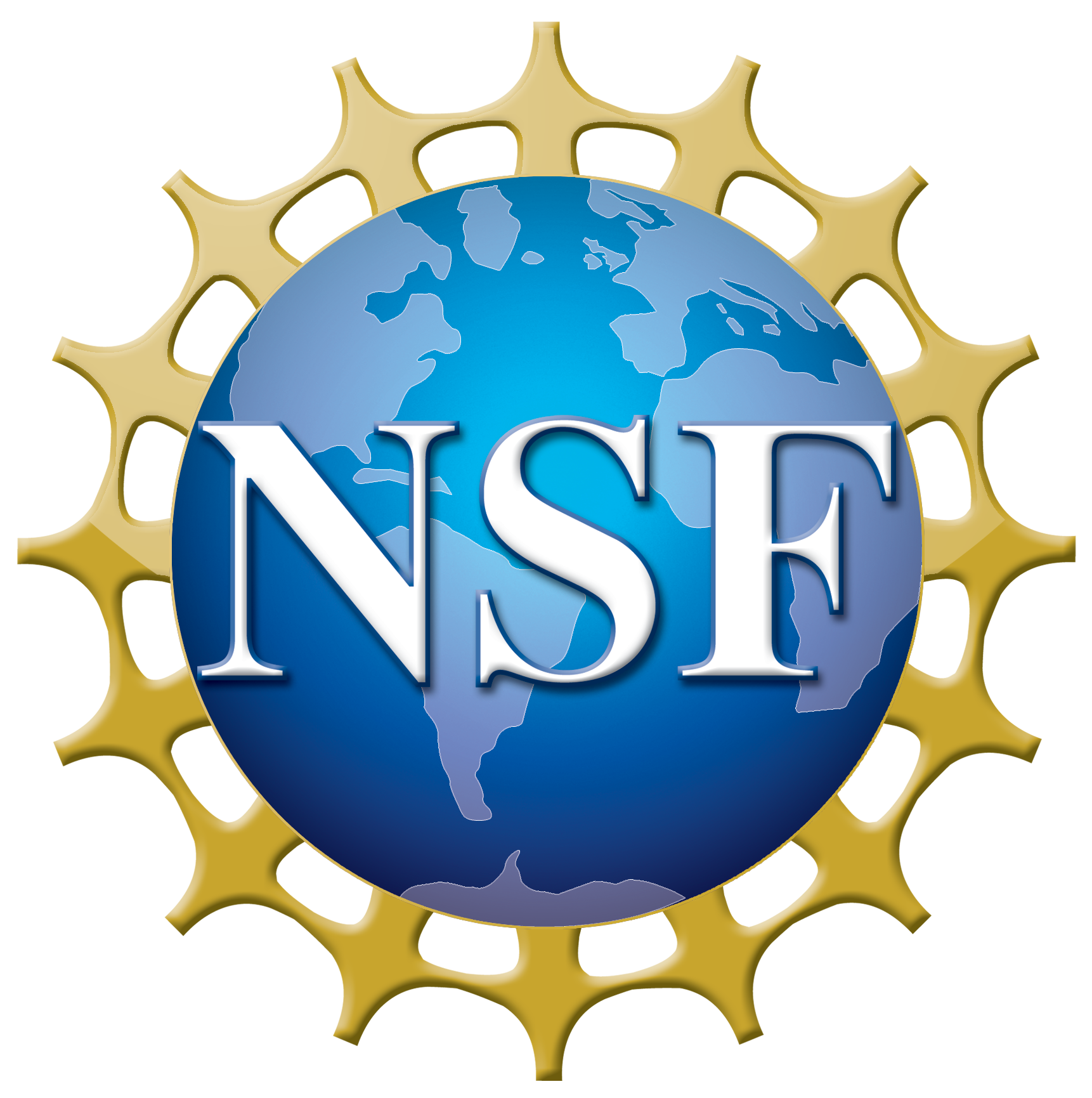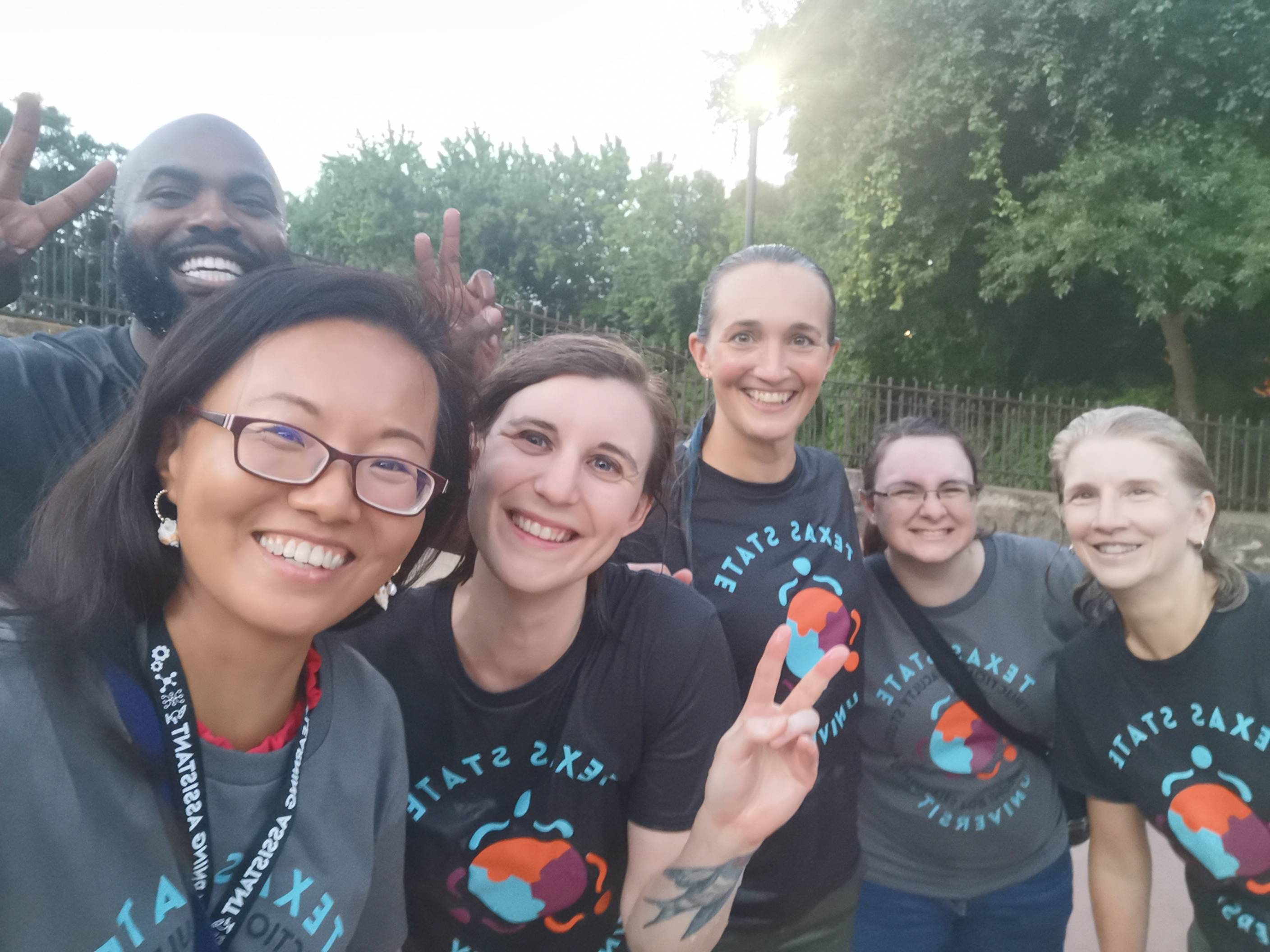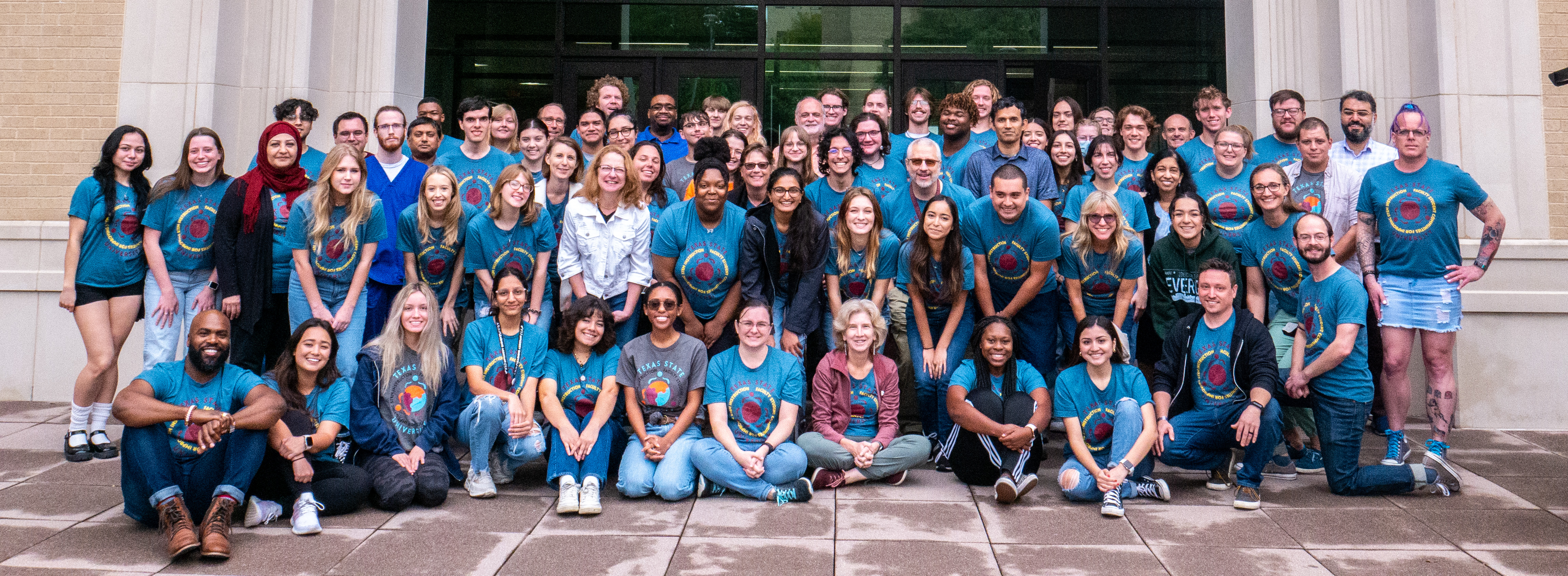STEM Communities Learning Assistant Program Project Overview
What is the STEM Communities Learning Assistant Program?
The STEM Communities Learning Assistant Program is a collaborative, community-driven effort to increase the use of culturally responsive instructional approaches across the Texas State University College of Science and Engineering. The program focuses on generating new knowledge of effective change strategies that can inform efforts at Hispanic Serving Institutions and other higher education institutions. The project is supported by a five-year, $2.5 million NSF grant entitled "Creating Faculty-Student Communities for Culturally Relevant Institutional Change." It officially launched in Fall 2019.
Programmatic components provide STEM faculty and students with opportunities to engage in workshops, department instructional assessments, redesign of lower-division gateway courses, and project-level decision making. Participating STEM departments receive multifaceted intellectual, material, and logistical supports to empower faculty-student teams in developing sustainable communities focused on culturally relevant instruction. The project also involves three research strands focusing on communities among faculty and students, STEM student trajectories at Texas State, and student graduation rates and STEM workforce outcomes for Texas State and other Hispanic Serving Institutions. Project activities are guided by our theory of change.
What is the STEM Communities Project Theory of Change?

Our Theory of Change Elements
Context
Texas State University is a large, diverse Hispanic-Serving Institution in Central Texas.
Learn more about our student enrollment, demographics, and other key facts and figures.
Programmatic Approach (Interventions to Preconditions)
Our 4 programmatic components (interventions) are designed to lead to corresponding intermediate outcomes (preconditions) and build towards our long-term outcome.
- Workshops and campus events help to raise faculty's awareness of and motivation to implement student-centered and culturally responsive instructional approaches in undergraduate STEM courses.
- Our department instructional assessment process creates an opportunity for faculty to form a team with their colleagues and start to learn about student experiences in a specific course or courses in their department. These teams begin to establish a shared vision for change that is grounded in students' strengths and needs.
- Faculty teams are encouraged to continue on to a collaborative course redesign process involving both faculty and students. Student team members participate as undergraduate Learning Assistants (LAs). All team members receive intellectual, logistical, and financial support for 3 academic semesters, as well as support through an intensive Summer Institute. This redesign work is intended to lead to improved instruction in the target course(s), an increased sense of agency among students who serve as LAs, and a greater sense of community among participants and their students.
- Each course redesign team includes at least one faculty team leader who meets regularly with our project team to offer their advice and insight. These faculty are well-positioned to help shape both current and future project activities. (We also added an LA advisory committee who offer complimentary ideas from a student perspective.)
Long-Term Outcome
The intended long-term outcome of this work is increased success of Texas State STEM students both in school and after graduation.
Research (Indicators)
Our 3 research strands (indicators) will provide insight into what works that can be shared with the broader higher education community, particularly other Hispanic-Serving Institutions with similar profiles. This research is also synergistic with our programmatic approach.
- Research on STEM student experiences and outcomes is central to the department instructional assessment process and will help to reveal changes that result from course redesigns.
- Research on faculty-LA communities focuses on the change process and the experiences of the faculty and students who participate as team members.
- Research on LA workforce outcomes focuses on the impacts of Learning Assistant programs like ours at a national scale, as well as broader patterns in which institutions use the LA model.
Assumptions
The assumptions that drive our theory of change are grounded in literature about instructional change processes and instructor-student collaboration.
Learn more about some of the literature underlying our theory of change.
NSF Award


